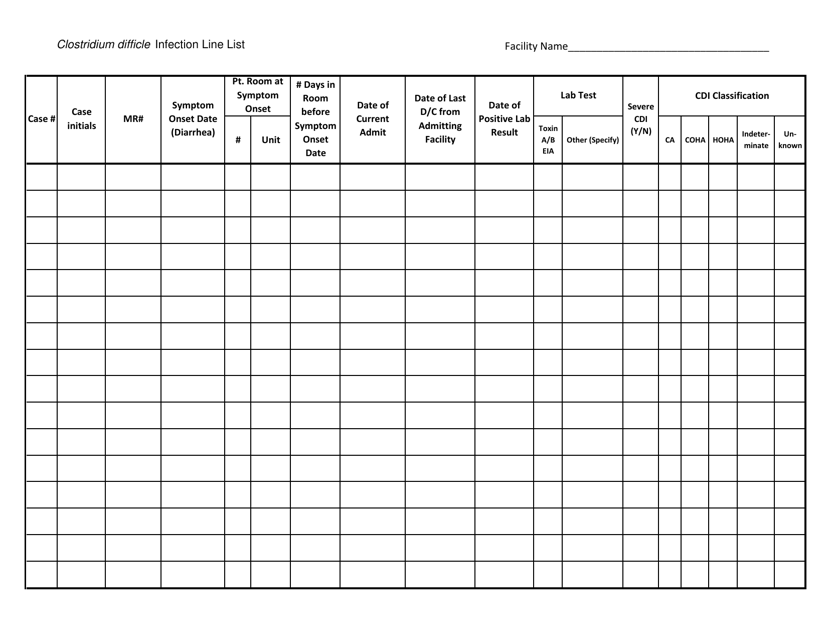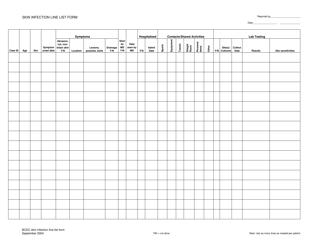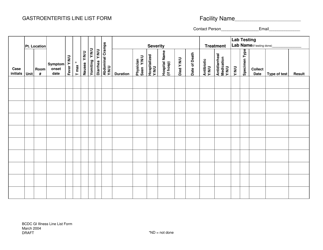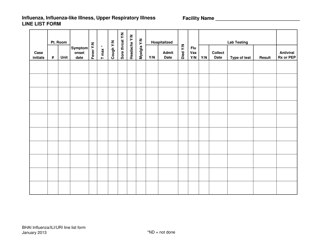Clostridium Difficle Infection Line List - New York
Clostridium Difficle Infection Line List is a legal document that was released by the New York State Department of Health - a government authority operating within New York.
FAQ
Q: What is Clostridium Difficile?
A: Clostridium Difficile is a type of bacteria that causes infection in the colon.
Q: What are the symptoms of Clostridium Difficile infection?
A: The symptoms include diarrhea, abdominal pain, fever, and loss of appetite.
Q: How is Clostridium Difficile infection spread?
A: It is usually spread through contact with contaminated surfaces or objects, as well as person-to-person contact.
Q: Who is at risk of getting Clostridium Difficile infection?
A: People who have recently taken antibiotics, are over the age of 65, have a weakened immune system, or have been in a healthcare facility are at higher risk.
Q: How is Clostridium Difficile infection diagnosed?
A: It is usually diagnosed through a stool sample, which is tested for the presence of the bacteria or its toxins.
Q: What is the treatment for Clostridium Difficile infection?
A: The treatment may include antibiotics that target the bacteria, as well as supportive care to manage symptoms.
Q: How can Clostridium Difficile infection be prevented?
A: Prevention strategies include practicing good hand hygiene, avoiding unnecessary use of antibiotics, and following infection control measures in healthcare settings.
Q: Is Clostridium Difficile infection contagious?
A: Yes, it can be contagious and can spread from person to person.
Q: What should I do if I suspect I have Clostridium Difficile infection?
A: If you suspect you have a Clostridium Difficile infection, it is important to seek medical attention for proper diagnosis and treatment.
Q: Are there any long-term complications of Clostridium Difficile infection?
A: In some cases, Clostridium Difficile infection can lead to severe complications, such as dehydration, colon inflammation, or even death.
Form Details:
- The latest edition currently provided by the New York State Department of Health;
- Ready to use and print;
- Easy to customize;
- Compatible with most PDF-viewing applications;
- Fill out the form in our online filing application.
Download a printable version of the form by clicking the link below or browse more documents and templates provided by the New York State Department of Health.





